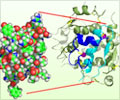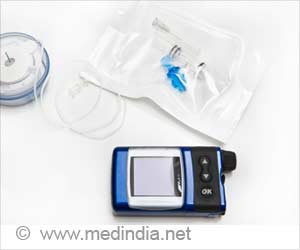Apolipoprotein A-IV could be used as a potential target for diabetes, suggest researchers.

It has been found that ApoA-IV has the ability to reduce blood sugar levels and enhance insulin secretion.
Previous studies have found ApoA-IV to be elevated in humans following gastric bypass-coinciding with improvement in symptoms for diabetes.
Carrying out their study on lab mice, Tso's team found that mice deficient in apoA-IV had impaired glucose tolerance and insulin was not secreted to move glucose from the blood stream.
These mice also developed diabetes when continuously fed a high-fat diet.
However, when injected with apoA-IV, these same mice showed improved insulin response to glucose, despite a diet high in fat.
Advertisement
Tso claimed that their research shows apoA-IV to behave similar to an incretin-a gastrointestinal hormone causing an increased release of insulin after eating to combat the onset of elevated blood glucose.
Advertisement
"The problem with both of these incretins is that they are short-lived-lasting only for minutes-and are quickly inactivated by an enzyme," saidso.
"They have also been linked to hypoglycemia, or low blood sugar, when administered when the body has a low glucose concentration. The challenge is to find something safer with a longer half-life," he said.
Tso insists that apoA-IV has a long half-life, something between seven and eight hours and that tests in his lab showed it to have no effect on glucose levels when administered at low glucose concentrations.
Instead, it seems to function to normalize glucose, he revealed.
For now, the University of Cincinnati has licensed this research finding to a startup biotech company, Apofore Corporation, formed by HealthCare Ventures of Cambridge, Mass. Apofore will further study apoA-IV in humans in an effort to develop novel diabetes therapeutic.
The study has been published in the online early edition of the Proceedings of the National Academy of Sciences.
Source-ANI















